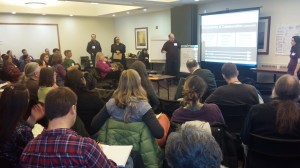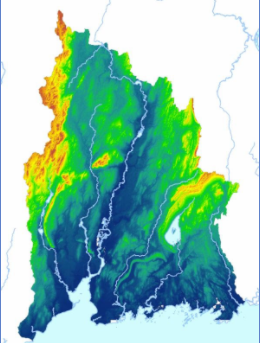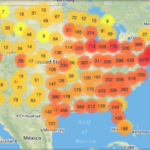Here is perhaps the most delicious turn that comes out of thinking about politics from the standpoint of place: anyone of any race, language, religion, or origin is welcome, as long as they live well on the land. The great Central Valley region does not prefer English over Spanish or Japanese or Hmong. If it had any preferences at all, it might best like the languages it has heard for thousands of years, such as Maidu or Miwok, simply because it is used to them. Mythically speaking, it will welcome whomever chooses to observe the etiquette, express the gratitude, grasp the tools, and learn the songs that it takes to live there.
― Gary Snyder, “A Place in Space: Ethics, Aesthetics, and Watersheds”
In treading upon the insubstantial ground of the future we take certain risks, and we must face the fact that the word “utopian” has become an epithet, a chastisement, for those who would dream of things that never were and imagine that they still might be. Yet it is a necessary part of any political construct that it offer an image of the future that can be regarded as positive and liberatory and realistic and energizing. This, I submit, bioregionalism succeeds in doing.
― Kirkpatrick Sale, “Mother of All: Introduction to Bioregionalism”
From “Earth Loyalty” by Fred Cervin:
Unless we personify Earth, we will not be able to repent, will not change enough, or soon enough. The writing is on the wall, stark and terrible. Implacable forces are already in play. The future of our species on this planet is at stake. It’s not just at risk. Don’t say it’s at risk. Disaster is a certainty if we don’t change radically. We are on a runaway train heading toward an abyss.
All this is happening because we have forgotten our Mother the Earth. We have no regard for her. We make our most consequential economic decisions without a thought for Earth. We treat her like an inert mass of raw materials or like a sterile desert of no use except as a place to throw our garbage. What we have lost fundamentally is a fresh, lively sense of our own dependence. We think of our relations with Earth as environmentalism— as if Earth were a mere externality, something in need of minimal maintenance—rather than being bone of our bone and flesh of our flesh. “Mother Nature” is a tired, worn-out figure of speech, useful only for sentimental greeting cards. The reality is quite different. She is the Goddess, and She will be honored, whether in heartfelt love and respect, or in catastrophe. Those who despise her will pay the price.
I say there is now only one way left, one hope for our species: to love Earth. To feel in our hearts that we are a part of Her, what we do to Her we do to ourselves. If you love Earth, you will not fail to evaluate any possible action in light of its effects on the one you love. If you love Earth, then you will vow earth loyalty. This is the one way change can come in time: hundreds of millions vow Earth Loyalty. There is no other way.
Bioregional awareness teaches us in specific ways. It is not enough to just ‘love nature’ or to want to ‘be in harmony with Gaia.’ Our relation to the natural world takes place in a place, and it must be grounded in information and experience.
— Gary Snyder




